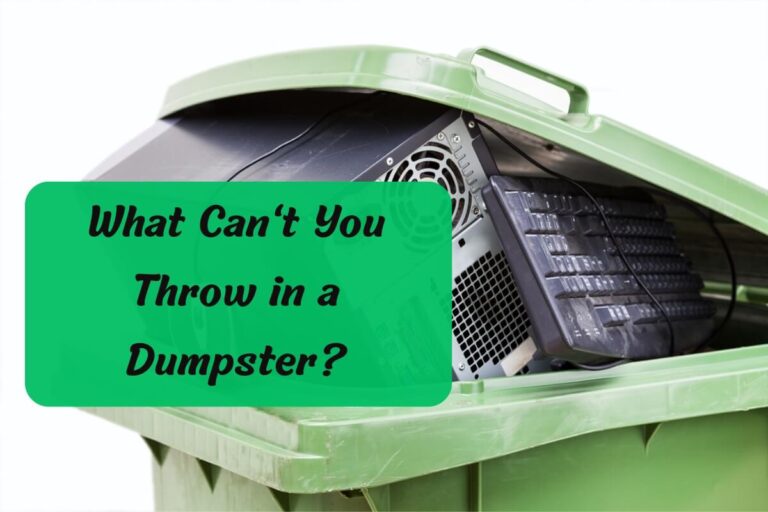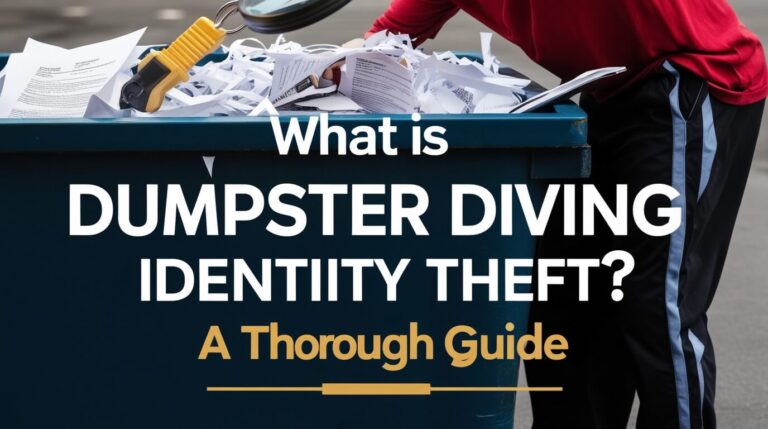
Have you ever stumbled upon something perfectly good on the curb or in a dumpster and thought, “Why would anyone throw this away?” If so, you’ve glimpsed the world of dumpster diving – the practice of rescuing usable items from trash receptacles. In this guide, we’ll explore everything you need to know about dumpster diving, including its definition, legalities, ethical considerations, safety tips, and strategies for successful finds.
Understanding Dumpster Diving
Definition and Etymology
Dumpster diving, also known as skip diving, bin hoking, or totting, refers to the act of salvaging reusable or valuable items from commercial, residential, or public waste receptacles. The term “dumpster diving” originated in the 1980s, combining the words “diving” and “dumpster” (a brand of large trash bins).
While it may seem like an unconventional practice, dumpster diving serves an important role in reducing waste and overconsumption. Many perfectly good items are discarded due to overstocking, minor defects, or simply being replaced by newer models.
Why Do People Dumpster Dive?
People engage in dumpster diving for various reasons, including:
- Necessity: For some, dumpster diving provides access to free food, clothing, and household items when money is tight.
- Ideology: Dumpster diving aligns with an anti-consumerism or freegan lifestyle, promoting sustainability by reusing discarded goods.
- Profit: Some dive for valuable items they can sell, such as scrap metal, electronics, or collectibles.
- Curiosity/Recreation: The thrill of the hunt and finding unique treasures appeals to some dumpster divers.
According to a 2017 survey, around 15% of Americans have tried dumpster diving at least once, with higher rates among younger generations.
The Legalities of Dumpster Diving
Is Dumpster Diving Legal?
The legality of dumpster diving varies depending on location and circumstances. In the United States, the 1988 Supreme Court case California v. Greenwood established that there is no reasonable expectation of privacy for discarded materials, meaning police do not need a warrant to search through trash.
However, dumpster diving may still be considered trespassing, theft, or illegal scavenging in some areas, especially if “No Trespassing” signs are posted or dumpsters are located on private property behind locked gates or fences.
Potential Legal Issues
Dumpster divers may face charges like trespassing or vandalism, even though taking discarded items isn’t typically considered theft:
- Trespassing: Entering private property without permission.
- Theft of Trade Secrets: Taking proprietary information or client data from a business’s trash.
- Environmental Violations: Illegally removing recyclable materials intended for sanctioned collection.
- Public Nuisance: Creating litter, obstructing traffic, or disturbing the peace while diving.
To avoid legal troubles, research your local laws and obtain permission from property owners whenever possible. Respect posted signs and locked enclosures.
Where and What to Look For
Best Locations for Dumpster Diving
Some optimal locations for dumpster diving include:
- Retail Stores: Clothing, furniture, electronics, and marketing displays are common finds.
- Restaurants/Grocery Stores: Edible food items and packaging may be discarded daily.
- Office Buildings: Papers, binders, office supplies, and outdated electronics get tossed regularly.
- Construction Sites: Surplus building materials are often thrown out.
- College Campuses: Students frequently discard furniture, appliances, and electronics at the end of semesters.
Common Dumpster Diving Finds
Experienced divers have discovered all sorts of valuable goods in the trash, such as:
- Designer clothing and accessories
- Furniture and home decor items
- Small electronics and gadgets
- Non-perishable and preserved foods
- Books, magazines, and media
- Art and craft supplies
- Scrap metal and recyclables
With a keen eye and some luck, you never know what treasures you might uncover! However, use caution with items like perishable foods or anything showing obvious signs of damage or contamination.
Staying Safe While Dumpster Diving
While dumpster diving can yield amazing finds, there are some inherent risks involved that should not be overlooked. Proper precautions are essential for your health and safety.
Physical Safety Precautions
- Wear Protective Gear: Gloves, closed-toe shoes, long pants and sleeves can prevent injury from sharp objects or hazardous materials.
- Use Proper Equipment: Bring a flashlight, small stool or pole to avoid straining or falling into dumpsters.
- Watch for Hazards: Be cautious of broken glass, nails, syringes or other dangers that may be hidden in the trash.
- Have a Partner: A second set of eyes can watch for onlookers or threats while you search.
Health and Hygiene
- Avoid Questionable Materials: Perishable foods, toxic substances, or items showing signs of contamination are best left alone.
- Wash After Diving: Shower thoroughly and wash clothing to remove any germs or residue from the trash.
- Properly Clean Finds: Disinfect and rinse any salvaged items before using them to eliminate bacteria.
Prioritizing safety will allow you to dive responsibly and prevent illness or injury.
Dumpster Diving Ethics and Etiquette
Beyond the legalities, dumpster diving also carries ethical considerations regarding waste, property rights, and community impact.
Environmental Benefits
From an environmental perspective, dumpster diving reduces the strain on landfills and material resources by giving discarded goods a second life. This aligns with principles of reducing waste and conscientious consumption.
Respecting Private Property
Dumpster diving in public trash cans is usually okay, but doing so on private property without permission is considered trespassing. Know and follow local laws and posted signs.
Not Making a Mess
Responsible dumpster divers take care not to litter or create unsightly conditions in the areas they hunt. Leave a location as clean as or cleaner than you found it to avoid community nuisance complaints.
Following ethical dumpster diving practices ensures the activity is sustainable and welcomed, rather than disruptive.
Tips for Successful Dumpster Diving
Now that you understand what dumpster diving involves, here are some tips to maximize your chances of scoring great finds:
- Go at Optimal Times: Visit shortly before or after operating hours and trash collection schedules.
- Check Residential Areas: People frequently discard usable items during moves or home clean-outs.
- Bring Bags/Containers: Have a way to conveniently carry and sort your discoveries.
- Evaluate Condition: Pass on any items showing major defects or signs of contamination.
- Properly Dispose of Trash: Return or dispose of items you don’t want to avoid littering.
With some experience and the right approach, dumpster diving can become a rewarding treasure hunt! Just be safe, respectful, and conscious of the laws in your area.
Conclusion
Dumpster diving is the practice of salvaging reusable goods from trash receptacles, serving as an alternative to sending perfectly good items to the landfill. While controversial to some, this activity provides access to free or low-cost items for those in need and aligns with sustainability principles when done legally and responsibly.
By familiarizing yourself with dumpster diving laws, taking necessary safety precautions, and understanding where to hunt and what to look for, you can potentially uncover valuable treasures amidst society’s excess waste. Just be sure to respect property boundaries, clean up after yourself, and stay out of harm’s way.
With some skill and luck, your next great find could be waiting in a dumpster near you! So keep an open mind to the possibilities of dumpster diving as a socially-conscious way to reduce, reuse and recycle.






